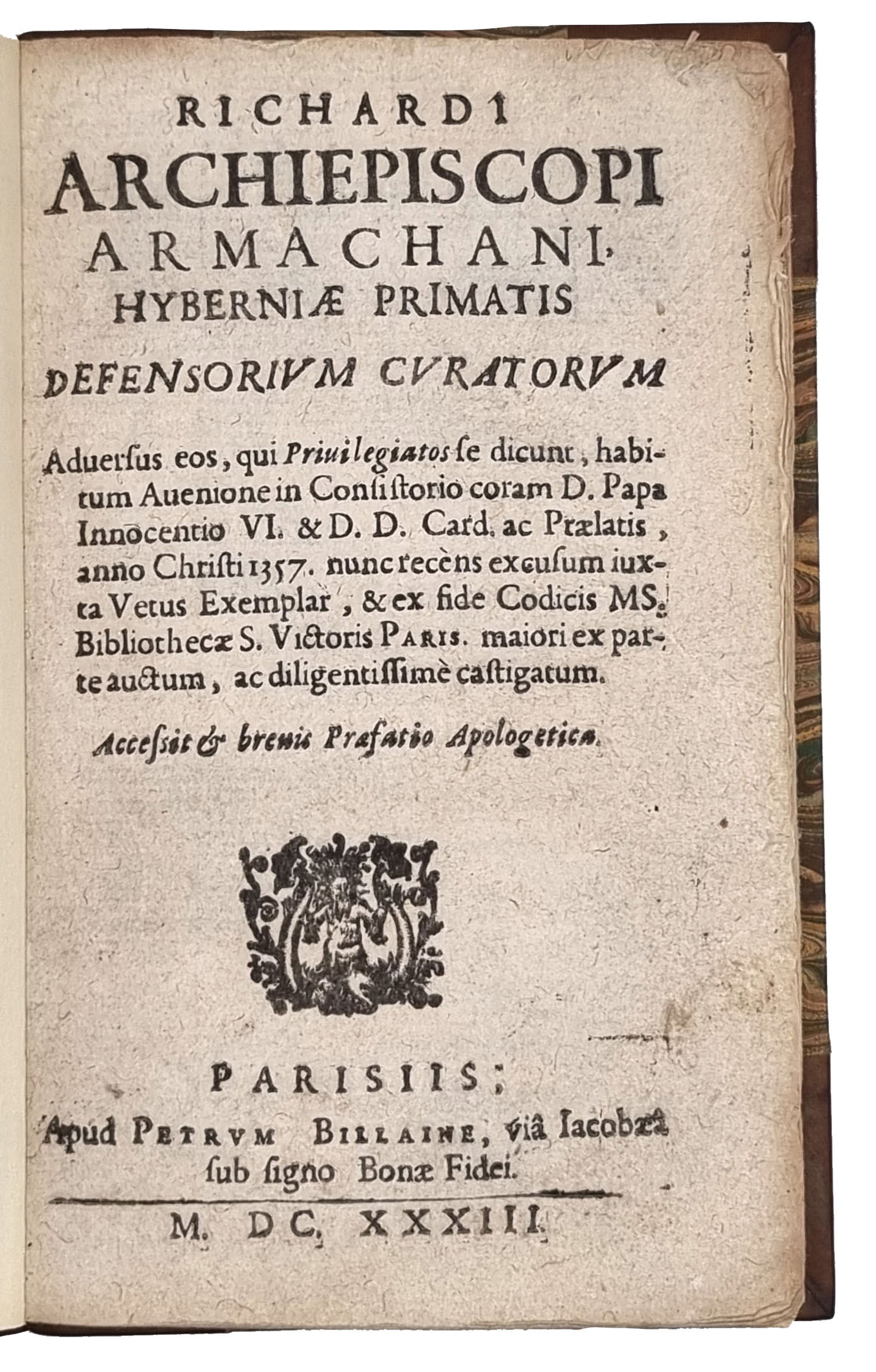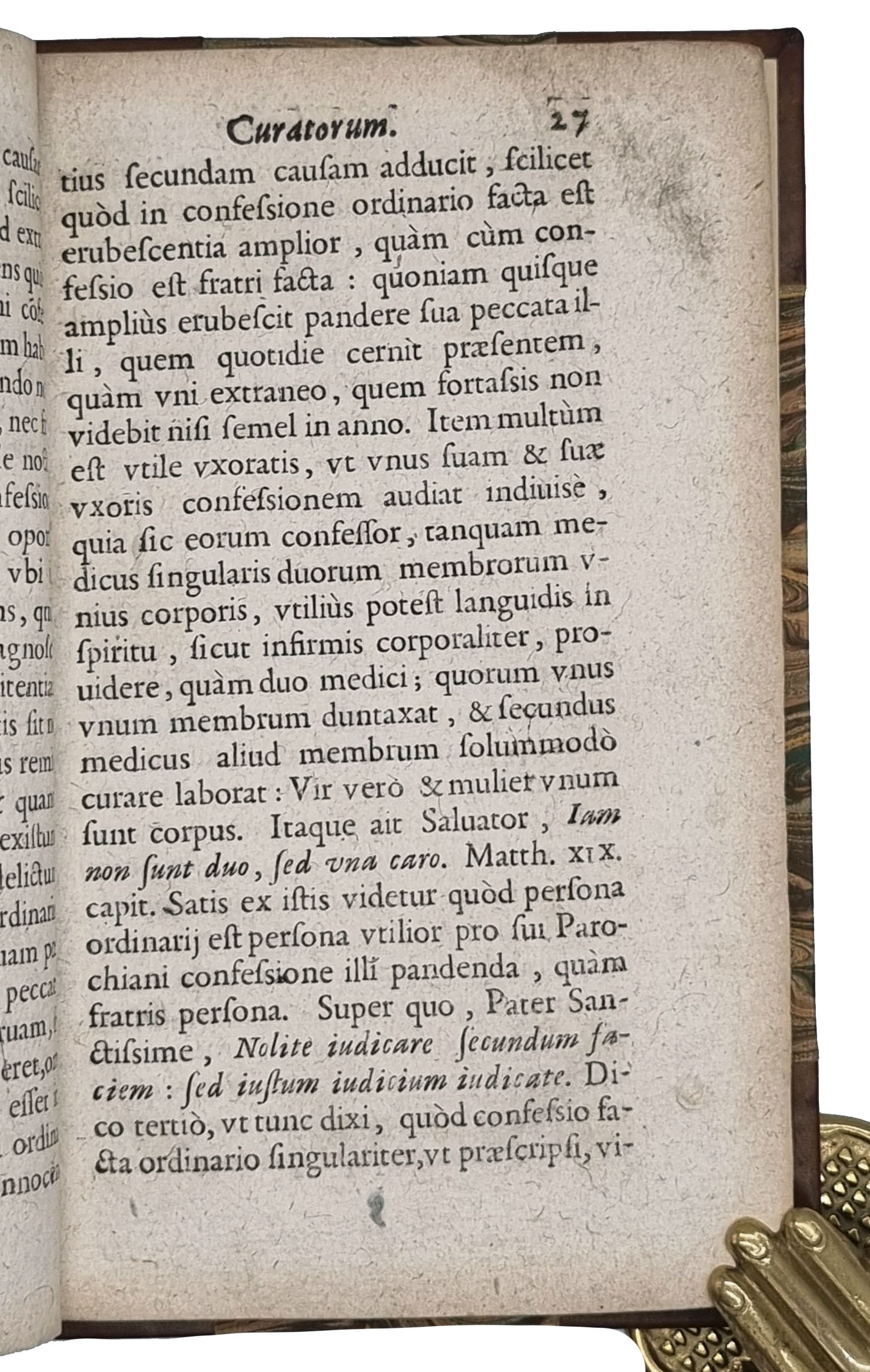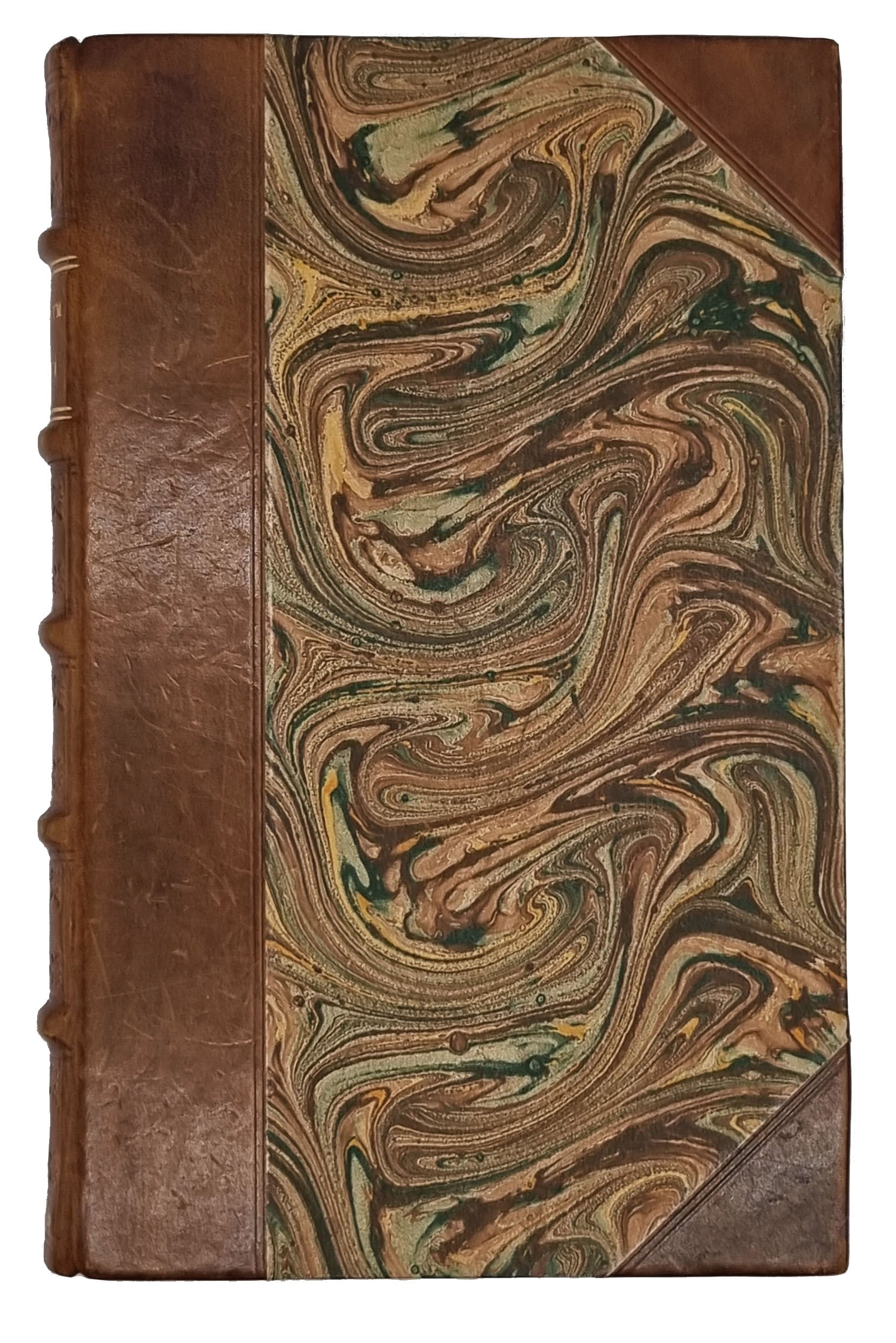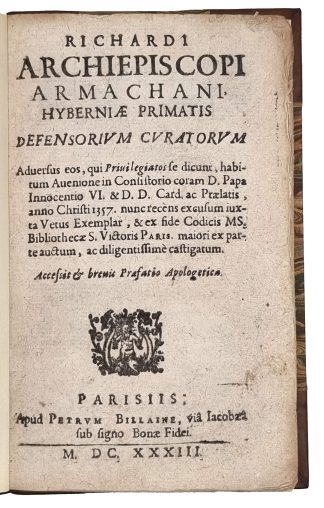FITZRALPH, Richard
THE FIRST PRINTED BOOK BY AN IRISH AUTHOR
Ricardi Archiepiscopi Armachani Hyberniae Primatis Defensorium Curatorum aduersus eos qui privilegiatos se dicunt
Paris, Apud Petrum Billaine, 1633£3,250.00
8vo. pp. [xvi] 168. á8, A-K8, L4. (á7+8 blank). Roman letter, some Italic. Small woodcut ornament on title, floriated woodcut initials and woodcut headpieces. Light age yellowing, the very occasional marginal spot or mark. A very good copy in modern three-quarter calf over marbled boards, spine with raised bands, blind ruled in compartments, blind fleurons.
Extremely rare edition of the major published work of the C14th Archbishop of Armagh, Richard Fitzralph, the first printed book by an Irish author, a work which defended the secular clergy in their contest with the mendicant orders; this edition was most probably printed at Paris at the instigation of the secular priest Paul Harris who was himself involved in a similar dispute at Dublin over three centuries later. Richard FitzRalph, Archbishop of Armagh, one of the most eminent Irish churchmen of the middle ages, was born at Dundalk about the end of the 13th century, and was educated at Oxford where he became Chancellor in 1333. He was made Chancellor of the church of Lincoln in 1334, became Archdeacon of Chester in 1336, and was installed Dean of Lichfield in 1337. He was advanced to the see of Armagh By Pope Clement VI. and was consecrated at Exeter, on 8th July 1347.“Fitzralph’s controversy with the friars came to a crisis when he was cited to Avignon in 1357. Avowing his entire submission to the authority of the Holy See, he defended his attitude towards the friars in the plea entitled “Defensorium Curatorum”. He maintained as probable that voluntary mendicancy is contrary to the teachings of Christ. His main plea, however, was for the withdrawal of the privileges of the friars in regard to confessions, preaching, burying, etc. He urged a return to the purity of their original institution, claiming that these privileges undermined the authority of the parochial clergy. The friars were not molested, but by gradual legislation harmony was restored between them and the parish clergy. Fitzralph’s position, however, was not directly condemned, and he died in peace at Avignon.” Catholic Encyclopaedia.
This edition contains an additional foreword under the title, ‘Ad Lectorem prfatio apologetic’ which has been attributed to the secular Priest Paul Haris then involved in a violent dispute with Thomas Fleming, Franciscan archbishop of Dublin. Paul Harris was not the only Secular Priest to oppose the Friars and it is certain that the secular priests looked to FitzRalph’s work for inspiration. “David Rothe, Bishop of Ossory, and first member of the new counter-reformation episcopate being established in Ireland from 1618, was alleged to hold the view that members of religious orders had forfeited their rights to the old monastic impropriations and even speculated that members of religious orders were not, in the strict sense members of the ecclesiastical hierarchy. Rothe’s regular opponents even dubbed him un Segundo Richardo Armachano after Richard FitzRalph the anti-mendicant fourteenth-century archbishop.” John McCafferty. ‘The Reconstruction of the Church of Ireland’. A very good copy of a very rare work.
In stock





